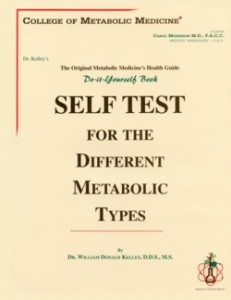 Diets high in cheeseburgers and fries and low in whole grains and veggies account for over 80,000 cancer cases a year.
Diets high in cheeseburgers and fries and low in whole grains and veggies account for over 80,000 cancer cases a year.
We now know without a shadow of a doubt that eating highly processed foods lacking in nutrition is not just bad for our waistlines, but for our cancer risks. There’s a clear link between excess body weight and at least six kinds of cancer, and probable links to at least seven others.
As of 2015, excess body weight accounted for about 5.2 percent of all new cancers, putting it on par with alcohol consumption, according to new research from Tufts University.
Over 60 percent of Americans are overweight and about 40 percent will get some form of cancer at some point in their lives.
Cancer treatments have improved dramatically, but as the obesity epidemic persists, it will only fuel additional diagnoses of malignant tumors.
The American Cancer Society (ACS) has designated obesity a significant risk factor for breast, colorectal, esophageal, kidney and pancreatic cancer.
The association also considers it a likely risk factor for cancers of the gallbladder, liver, cervix and ovaries as well as non-Hodgkin lymphoma and some aggressive forms of prostate cancer.
Even as overall cancer diagnoses decline in the US, cases of obesity-related cancers continue to increase – and there’s no sign of that stopping as more and more Americans continue to gain unhealthy weight on the Western diet.
Researchers at Tufts University compared specific obesity-related cancer rates and diagnoses to diets.
They found that that colorectal cancer – the most likely type to result from poor diet – was linked to eating too much highly processed and red meat and not enough whole grain or dairy.
 Cancers of the the mouth, pharynx and larynx were most closely associated with diets lacking in vegetables and fruits.
Cancers of the the mouth, pharynx and larynx were most closely associated with diets lacking in vegetables and fruits.
And diets chocked full of highly processed meats were also closely linked to stomach cancer.
Soda, fruit punch lemonade, sports and energy drinks sweetened with extra sugar are all considered to raise risks of both obesity and related cancers.
Nearly 40 percent – or 52,225 cases – of all diet-related diagnoses in 2015 were for colorectal cancer, rates of which are steadily climbing, especially among unusually young adults.
Although most elements of the Western diet are considered bad bellwethers for cancer, insufficient whole grain consumption was the most closely linked to cancer development of any eating pattern.
Coming in at the second most likely culprits was low dairy consumption, followed by high processed meat intake and diets low in fruits and vegetables.
It isn’t entirely sure why eating a diet full of highly-processed red meat burgers, empty carbs and saturated fats, like what one finds in fires, and low in grains like wheat, fish and fresh produce raise cancer risks.
The prevailing theory is that these foods encourage fatness and excess body weight and fat cause inflammation which, in turn, may have a corrupting effect on cells, causing them to mutate and turn cancerous.
And highly processed foods were recently deemed a cause of – not just a risk factor for – over-eating and excess weight gain by the National Institutes of Health.
Together, these diet factors may help fuel the seven to eight percent of all cancers that are thought to be the result of excess body weight, regardless of diet.
‘Our findings underscore the opportunity to reduce cancer burden and disparities in the United States by improving food intake,’ said first study author Dr Fang Fang Zhang, a cancer and nutrition researcher at Tufts.
Written by Natalie Rahhal, Deputy Health Editor for The Daily Mail. ~ May 22, 2019
FAIR USE NOTICE: This site contains copyrighted material the use of which has not always been specifically authorized by the copyright owner. We are making such material available in our efforts to advance understanding of environmental, political, human rights, economic, democracy, scientific, and social justice issues, etc. We believe this constitutes a ‘fair use’ of any such copyrighted material as provided for in section 107 of the US Copyright Law. In accordance with Title 17 U. S. C. Section 107, the material on this site is distributed without profit to those who have expressed a prior interest in receiving the included information for research and educational purposes. For more information go to: http://www.law.cornell.edu/uscode/17/107.shtml

